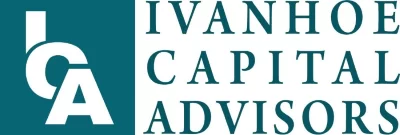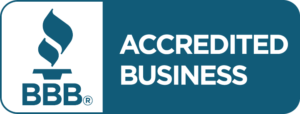You have likely faced a common conundrum as a business owner. You need to invest money in your business to grow it, but it is also necessary to set aside enough money to cover operational costs. Expenses such as equipment, property, advertising and marketing are essential for growth and they do not come cheap. Further compounding matters are the significant ongoing costs of running your business like payroll, utility bills and rent.
Fortunately, you have the option to take out a business loan to cover these expenses. Businesses take out loans to pay for expenses associated with equipment, inventory, cash flow, expansion, and to improve terms on a larger loan. There are many different types of business loans that can be used for a variety of expenses. Keep reading to find out which type of financing may be best for your needs.
SBA 7(A)
This is the basic loan program available from the Small Business Administration and among the most popular. You can take out SBA 7(A) loans in the maximum amount of $5 million. The terms of these loans are seven years for working capital and equipment and 25 years for real estate. Funds from the loan can be used for equipment purchases, working capital, construction, rehabilitation, debt consolidation, or refinancing existing loans and acquisitions.
SBA 504
If you are looking for financing that is small business-friendly, an SBA 504 loan is a great option. It offers low-interest rates, an appealing 10% to 20% down payment and 10- to 25-year terms. The funds, which have a $20 million cap, can be used for machinery, equipment and real estate. The majority of 504 loans are approved for established businesses. Borrowers must have a good credit history – meaning a credit score above 650 and no red flags in their recent financial history
USDA – B&I
This financing is geared specifically toward credit-worthy rural businesses. The purpose of this loan program is to assist credit-worthy rural businesses in securing credit for necessary business expenses. B&I loans offer better terms and pricing than most conventional loans. Interest rates can be variable or fixed depending on the outcome of negotiations. The terms of each loan depend on how the borrower is planning to use the money. Refinancing, construction and acquisitions are all permitted uses.
Unsecured Commercial Line Of Credit
The beauty of an unsecured commercial line of credit is, it provides a revolving credit limit without requiring the borrower to offer up collateral to secure it. The trade-off is that many of these lines of credit have lower credit limits, shorter repayment terms and higher rates. In addition, borrowers must have an outstanding credit score and not have a high utilization rate of their existing
Revenue-Based Small Dollar Loan
Borrowers who get a revenue-based small-dollar loan must contend with a fixed repayment target reached over a period of several months or years. The advantage to this type is borrowers do not have to relinquish control or sell equity. Revenue-based small-dollar loans impose a repayment amount of 1.5 to 2.5 times the principal loan. This financing may be used for inventory, growth and working capital.
Small Loan APR
Strictly reserved for organizations that have been in business for a minimum of two years, the small loan APR program is designed for established businesses that are in need of additional equipment, inventory, growth capital and working capital.
Accounts Receivable Factoring
With accounts receivable factoring, companies can finance their accounts receivable from clients they offer terms to. One of the major benefits of this financing is the dependable cash flow it provides. Funds are typically available immediately. Accounts receivable factoring advances are determined by the borrower’s transaction risk level and industry. The factoring rate is based on your factored volume, transaction risk, and the creditworthiness of your invoices.
Purchase Order Financing
Businesses that struggle with the cash flow necessary to pay for the supplies or delivery means necessary to fulfill a customer’s purchase order can possibly access purchase order financing. Instead of transferring funds into the company’s bank account, the lender sends an advance directly to the company’s supplier or suppliers for the materials the company needs to fulfill the order.
Asset-Based Lending
The amount of these loans is determined by assets – typically inventory and accounts receivable are used as collateral. Lenders and borrowers agree on a percentage of the secured assets’ value. In most cases, the percentage is 50% of the finished inventory and 70% to 80% of eligible receivables.
Leasing
Businesses that need equipment to grow their business, but lack the funds to purchase it, have the option of leasing it for an agreed-upon period of time. Once the contract is up, the lessee has the option to buy the equipment.
Transitional Loan Financing
This type of financing is ideal for businesses that have a significant amount of equipment and machinery, and are seeking refinancing, working capital, discounted loan payoffs and debtor-in-possession financing.
Private Equity Medical ABL
Medical professionals who need to obtain a revolving line of credit instead of factoring their receivable are a good fit for private equity medical ABL.
Choosing The Right Type Of Loan For Your Business
Ivanhoe Capital Advisors is able to offer all of these business loans thanks to its strong working relationships with a large network of lenders. The company has more than 70 years of combined industry experience and advanced underwriting capabilities.
Working with an expansive national network of direct lenders, Ivanhoe Capital Advisors is particularly skilled at working with small to mid-market businesses. You will set your business up for long-term financial success when you trust their many resources, decades of experience and vast industry experience.
Try Our SBA Loan Fee Calculator
Let’s Talk
If you need our help with any business loan type listed above, have a few questions, or are ready to apply our experts are here for you. Please call us at 847-644-8085 or fill out our short form and we will get back to you within 24 hours.



